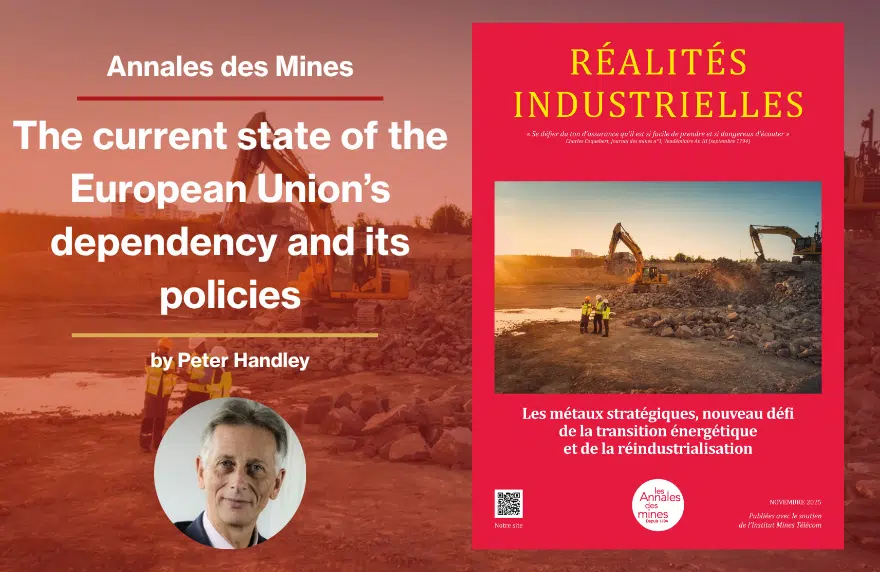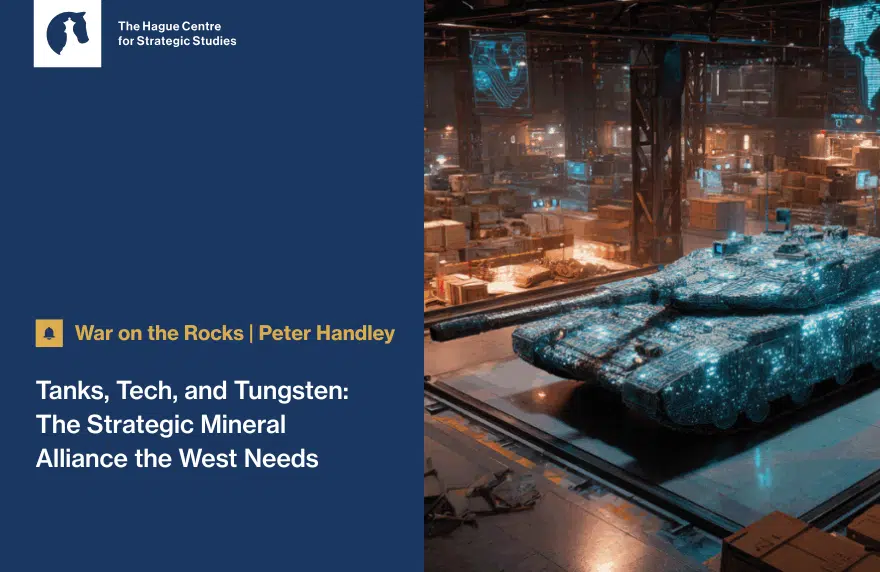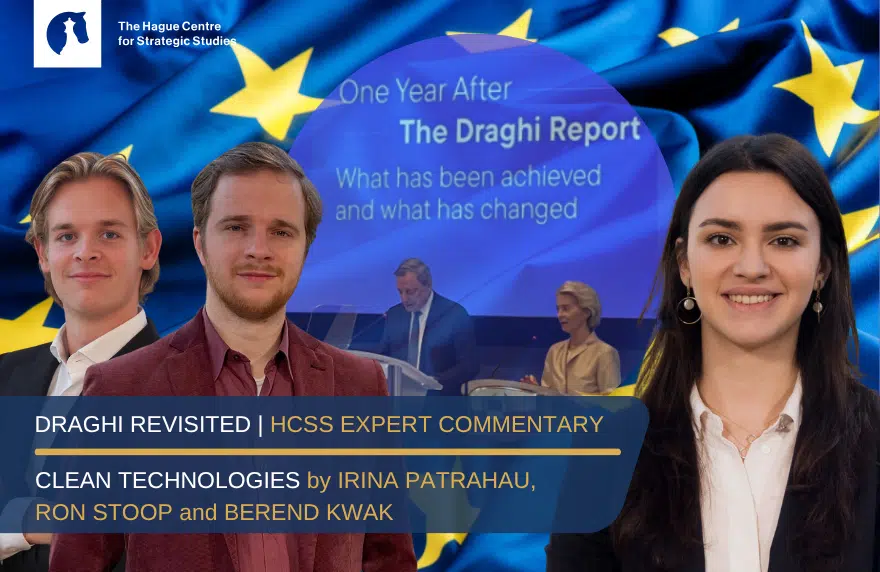In an article for Les Annales des Mines, HCSS strategic advisor Peter Handley examines how the EU’s efforts to reduce strategic dependencies — from energy to defence — have paradoxically coincided with rising import reliance. As China tightens export controls and the US races ahead with industrial policy, Handley argues that Europe must urgently shift from awareness to action to secure critical raw materials — and with them, its strategic autonomy.
In Les Annales des Mines’ latest edition, Réalités Industrielles: Les métaux stratégiques, nouveau défi de la transition énergétique et de la réindustrialisation, HCSS strategic advisor Peter Handley analyses the evolution of the European Union’s strategic dependencies — and its growing urgency to address them.
Since Ursula von der Leyen’s Commission first championed “strategic autonomy” in 2019, the EU has made important strides to secure its access to critical raw materials (CRMs), launching the Critical Raw Materials Act (CRMA) in 2024 and a series of major defence and industrial initiatives in 2025. Yet, as Handley argues, Europe’s dependency has not fallen — it has deepened. The EU remains nearly 90% import-dependent for critical materials, many of which are refined almost entirely in China.
This dependency is no longer theoretical. Recent Chinese export controls on gallium, graphite, and rare earths have exposed how fragile Europe’s supply chains truly are — with direct implications not only for the green and digital transitions, but also for defence and security.
Handley highlights the EU’s response: from the Readiness 2030 and ReArm Europe defence initiatives, to the establishment of an EU Critical Raw Material Centre and the proposed European Competitiveness Fund. Together, these measures represent Europe’s most ambitious attempt yet to build resilience and secure supply.
But ambition must be matched by urgency. As the United States and China move decisively to dominate global supply chains, the EU risks falling behind unless it acts with equal boldness.
Handley concludes with a warning — and a call to action: Europe must move from strategy to execution, pooling public and private power to secure its industrial future. Strategic autonomy, he writes, is no longer a vision. It is a necessity.
📖 Read the full edition of Les Annales des Mines here:







